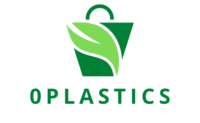Landfill Overflow: A Plastic Plague Choking our Land
Across the globe, mountains of garbage rise, monuments to our throw-away culture. At their heart, a silent villain reigns: disposable plastic. This ubiquitous material, designed for convenience, is suffocating our landfills and poisoning our planet.
An Avalanche of Plastic: Global plastic production has skyrocketed, exceeding 367 million tons in 2021. Much of this ends up in landfills, with plastic bottles, bags, and packaging contributing significantly. These behemoths overflow, spilling toxins into soil and groundwater, threatening ecosystems and human health. In developing countries, overflowing landfills exacerbate existing sanitation and pollution problems.
Land Scarred, Resources Squeezed: Landfills devour precious real estate, often encroaching on vital ecosystems and agricultural land. As they reach capacity, finding new disposal sites becomes an increasingly difficult and expensive challenge. Moreover, methane, a potent greenhouse gas, escapes from decomposing plastic, further accelerating climate change.
A Toxic Legacy: Plastics don’t biodegrade in the traditional sense. Instead, they fragment into microplastics, infiltrating our food chain and polluting oceans. Marine animals ingest them, mistaking them for food, with potentially lethal consequences. These microplastics end up back on our plates, a grim reminder of our plastic dependence.
Breaking the Plastic Habit: The solution lies not just in waste management, but in fundamentally changing our relationship with plastic. We must prioritize alternatives like reusable materials, invest in biodegradable alternatives, and incentivize responsible production and consumption. Governments can enforce stricter regulations on single-use plastics, while fostering research into innovative solutions.
Individual Action, Collective Impact: Consumers, too, have a role to play. Choosing reusable bags, reducing plastic packaging, and properly disposing of plastic waste are small steps with significant impact. By saying no to plastic straws and demanding sustainable options, we can send a powerful message to producers and policymakers.
Landfill overflow is not merely a waste disposal crisis; it’s a symptom of a broken system. By acknowledging the dangers of our plastic addiction and embracing a conscious lifestyle, we can reclaim our land from the rising tide of plastic. Together, we can rewrite the narrative, transforming landfills from dumping grounds into testaments of our collective responsibility and commitment to a sustainable future.
